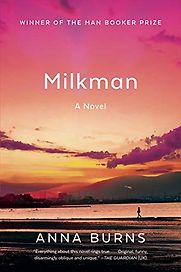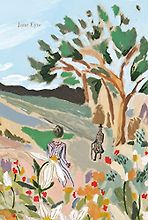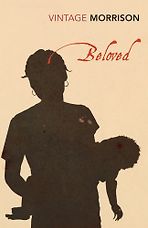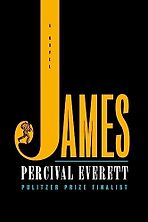Milkman
by Anna Burns
Winner of the 2018 Booker Prize, Milkman is a disquieting tale of sexual harassment set in Belfast during The Troubles—or at least, that’s what the reader must surmise. As with many aspects of this unusual novel, its setting is never made explicit. The narrator is a young, bookish woman feeling her way through life in a society soaked in fear and paranoia; when she finds herself the focus of unwanted advances from a shadowy dissident figure known only as ‘the milkman,’ local gossips go into overdrive. Must she accept her new, unasked-for status as a paramilitary hanger-on?
Milkman also won the National Book Critics Circle Award for fiction in 2019, and was shortlisted for the Women’s Prize for Fiction in the same year.
This book has, perhaps unfairly, developed a reputation as a “difficult” book. And, admittedly, it sounds like one. For one thing, the characters are nameless, or rather given shifting, relational aliases—’middle sister,’ ‘longest-friend,’ ‘maybe-boyfriend’—or purposefully-opaque nicknames such as that of the titular milkman. (“He wasn’t our milkman. I don’t think he was anybody’s. He didn’t take milk orders. There was no milk about him. He didn’t ever deliver milk.”)
Burns too writes in many-claused, elliptical sentences that loop back on themselves, with an interesting, even melodic, prosody: she states and restates, theme and variations. But perhaps it is for this reason that I so enjoyed consuming this title in the form of an audiobook: narrated with a pleasant Northern Irish lilt by Bríd Brennan, the circuitous prose washes over one effortlessly, without the risk of losing momentum—and brings the girl-who-reads-while-walking’s singular voice to vivid life.
For as much as Milkman is a strange, even surreal, book, it is also moving and wryly funny; one that gives insight into the social complexities of conflict, and what it takes to survive in a society riven by sectarianism.
 Cal Flyn, Deputy editor
Cal Flyn, Deputy editor
Recommendations from our site
“Anna Burns is a Northern Irish writer, and her third novel, Milkman, won the Booker in 2018…Its style and voice are striking because everything is written literally and namelessly. The protagonist is called ‘middle sister;’ she has a ‘maybe-boyfriend.’ They refer to ‘the country over the water,’ which is England, and ‘over the border,’ which is the Republic of Ireland. Everything is written that way, and it has a really powerful defamiliarizing effect, even though it’s a very accurate representation of a time and place in our real, lived global history…something magic happens when you remove the specificity of names, and instead you describe every character and every bit of this city as though it’s a science fiction novel.” Read more...
Arianna Reiche, Novelist
“A novel about how in any divided society, men can abuse their positions to take advantage of women. I think it’s also a novel about the terrifying power of gossip.” Read more...
Kwame Anthony Appiah, Philosopher
Commentary
Burns’s real achievement is the sense she creates of Northern Ireland as an otherworldly place, a threatening fairy-tale setting where people define themselves in opposition to those ‘over the border’, ‘over the water’ or simply ‘over the road’, and where there is ‘the right butter. The wrong butter. The tea of allegiance. The tea of betrayal.’ It’s a world where gatekeepers maintain a list of names that people must not call their children and where ballroom-dancing parents bridge the divide between communities.







Five Books review